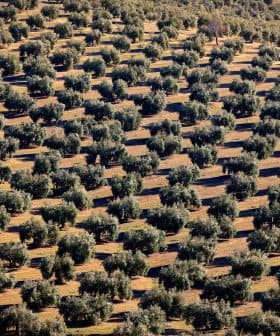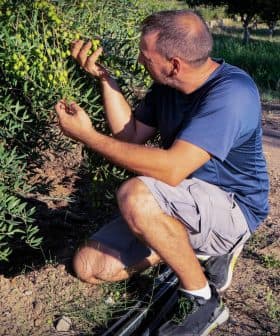Italian Farmhouses Experiencing Post-Pandemic Boom, Report Finds
The latest report from Ismea showed that farmhouse stays are rising compared to other forms of hospitality, with a growing concentration on experience-based stays.
Ismea’s report highlights the growth of farmhouses in Italy’s agritourism sector, with about 25,000 active farmhouses in 2021. Farmhouses are adapting to the pandemic by offering new experiences, such as cooking courses and olive oil tastings, to attract tourists seeking authentic rural experiences and are diversifying their income streams to include accommodation, retail activities, and more.
A new report from the Institute of Services for the Agricultural and Food Market (Ismea) demonstrates how a crucial part of Italy’s agritourism sector is evolving.
Ismea’s report showed that touristic stays at farmhouses are growing in value. Farmhouses also play an increasingly important role in promoting local and traditional agricultural products, including extra virgin olive oil.
Farmhouses need to look at what is happening in the market and how to change and upgrade their offerings and satisfy their clients.
In 2021, Ismea said about 25,000 farmhouses are actively operating in Italy. Officials expect them to rebound after seeing their revenues fall by almost 50 percent between 2019 and 2020. From 2010 to 2019, the sector grew on average 5 percent annually.
Agricultural production and farmhouses are considered by Ismea two of the main drivers of Italy’s economic recovery in 2021, as 70 percent of farmhouses reported stable or growing income and 39 percent reported a rising number of direct bookings from guests.
See Also:Just when Olive Oil Tourism Was Trending in Turkey, the Pandemic Hit“The first reason a farmhouse is resilient is that it is a farming company. That means that it is an activity that does not stop even during a pandemic-caused lockdown, as sowing, tillage and harvesting can not stop,” Diego Scaramuzza, president of the national agritourism association Terranostra-Coldiretti, told Olive Oil Times.
“But in this time, they also ventured into new fields, such as take away and home delivery,” he added. “Still, their home delivery of meals, or even quality ingredients for the home kitchen, does not follow the traditional commercial profile.”
Since 2020, the worst year of the Covid-19 pandemic, farmhouses have seen the number of total guests rise. The percentage of reservations at farmhouses (compared with the rest of the sector) increased from 3.2 percent in 2019 to 4 percent in 2020.
The Covid-19 pandemic provided farmhouses with new opportunities, allowing them to connect with clients who grew more conscious about health and where their food comes from.
According to the Ismea report, farmhouses underwent substantial changes during the pandemic to address the evolving concerns of potential clients. They became ambassadors for traditional regional recipes and products, such as extra virgin olive oil and wine, allowing visitors to taste and learn about the story behind these products.
“They fully entered a multi-functional approach and offered new opportunities, such as providing picnic baskets to their guests to let them eat among the olive trees or the vineyards,” Scaramuzza said.
According to Gian Marco Centinaio, the undersecretary of agriculture, the pandemic changed Italian tourism habits.
“The pandemic has led Italians to discover or rediscover tourism of proximity, which is sustainable and environmentally friendly,” he said during the presentation of the Ismea report. “Typicality, well-being, nature, education and being social are all elements that make the Italian model of multi-functionality a case of success and great potential.”
Ismea reported that 53 percent of farmhouses grow olives as their principal agricultural activity. By comparison, 43 percent said they mainly produce wine. In addition, one-fifth of all farmhouses reported being partially or entirely powered by renewable energy.
The institute also found that farmhouses are diversifying how they earn income. Eighty-one percent reported two principal earning activities in addition to farming, 62 percent reported at least three and 45 percent reported four.
See Also:Ercole Olivario Celebrates 30th Anniversary, Introduces Oleotourism AwardThose activities include accommodation, offered by 85 percent of the farmhouses, retail activities (58 percent), restaurants (54 percent), tastings (40 percent), cultural and recreational activities (23 percent) and educational activities (21 percent).
“Covid-19 and now even the war in Ukraine are making farmhouses see that the old days when guests would come over just to eat and sleep are over,” Scaramuzza said. “Now they are offering true novel experience opportunities, from cooking courses to extra virgin olive oil tastings, becoming touristic guides conscious of the excellency and uniqueness of their rural environments.”
He added that tourists increasingly seek authentic farmhouse experiences, from harvesting fruit to making pasta.
However, there are still plenty of challenges facing Italian farmhouses connected with the uncertainties that remain for international travel and the growing production costs. Ismea reported that 5 percent see the increasing costs of raw materials as a primary hurdle.
Other challenges come from farmhouses’ rural nature, which sometimes makes it difficult even to have a strong internet connection. Ismea reported that 66 percent of farmhouse reservations were made online directly with the farmhouse in 2020, up from 58 percent in 2019.
The trend suggests that farmhouses with less reliable internet face a competitive disadvantage as they rely on the services of third parties and the associated fees and commissions.
“Todays’ farmhouses must be strongly connected to their heritage, territory and traditions, but also have to wisely approach the future, to connect to the rest of the world with broadband internet,” Scaramuzza said.
“Farmhouses need to look at what is happening in the market and how to change and upgrade their offerings and satisfy their clients better,” he added. “At the same time, they have to learn to narrate those traditions and express their heritage.”
According to Ismea, 2021 has been the year of recovery, with 75 percent of farmhouses reporting the development of new services. Eighty-four percent of farmhouse owners believe that they will further implement and diversify the services offered to guests in 2022.
A further 52 percent of agribusinesses also believe that proximity tourism and Italian tourists will remain the majority of the guests in 2022. Thirty-eight percent believe their production value will grow this year, while 37 percent believe it will remain stable.
Share this article









